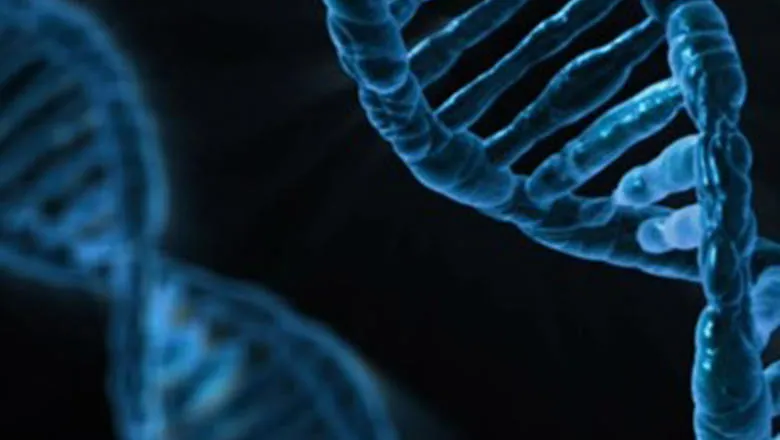
Dr Timothy Powell PhD
Senior Lecturer in Translational Genetics & Neuroscience
- Deputy Head of Department, Social, Genetic & Developmental Psychiatry
Research interests
- Biomedical and life sciences
Biography
Dr Timothy Powell joined King’s College London in 2009 as a 1+3 MSc/PhD student, after completing his undergraduate degree in Human Sciences at University College London. In 2014, he graduated with a PhD from the Social, Genetic & Developmental Psychiatry (SGDP) Centre, where he was also awarded the Gottesman-Shields PhD Prize. In 2016, after a two-year postdoctoral training position as part of the Biomedical Research Centre, he was awarded a Medical Research Council Skills Development Fellowship.
Dr Powell's current work combines wet-lab experimental methods with cutting-edge population genetic methods to investigate which biological mechanisms are important in mediating risk for psychiatric disorders, such as major depression, and identifying methods to reverse these risk mechanisms (e.g. drug repositioning). Biological mechanisms of particular interest include: telomere shortening, inflammation, neurogenesis, and human endogenous retroviral expression.
Dr Powell is Deputy Head of Department of the Social, Genetic & Developmental Psychiatry Centre. He currently leads the Psychiatric Biogerontology & Translational Medicine Group, where he supervises MSc students, PhD students and postdoctoral researchers.
Research interests
- Telomeres
- Genetics
- Biomarkers
- Neuroscience
- Cell development
Teaching
Timothy lectures on a number of MSc courses, and in particular, the Developmental Psychology & Psychopathology MSc
Expertise and public engagement
- 2017, Pint of Science: Timothy gave a talk about stem cells and drug repositioning for depression, entitled “Highs & lows: understanding the effects of drugs”, London.
- 2017, BBC Radio 4: Timothy discussed the prospect of using stem cells for drug repositioning in depression as part of the “All in the Mind” programme (goo.gl/nQpqMi).
- 2017, MRC Festival: Timothy talked to school children about genetics and taught them how to extract DNA from strawberries.
- 2016, Genes and Tonic event: Timothy led practical demonstrations on DNA extraction at The Accessible Genetic Consortium, which aims to make science more accessible to the public.
Research

Statistical and Computational Genetics and Genomics (SCGG) RIG
The SCGG Group brings together researchers at King’s who are developing and working with innovative quantitative and computational approaches for genomic discovery and its impact on human health.
News
Ancient viral DNA in the human genome linked to multiple sclerosis and amyotrophic lateral sclerosis
New research has revealed a connection between ancient viral DNA embedded in the human genome and the genetic risk for two major diseases that affect the...

Depression, schizophrenia and bipolar disorder linked with ancient viral DNA in our genome – new research
Around 8% of human DNA is made up of genetic sequences acquired from ancient viruses. These sequences, known as human endogenous retroviruses (or Hervs), date...

Ancient viral DNA in the human genome linked to major psychiatric disorders
New research has found that thousands of DNA sequences originating from ancient viral infections are expressed in the brain, with some contributing to...

Individuals at risk of severe COVID-19 might have lower levels of inflammation prior to infection
New research from King's has identified three key inflammatory proteins which are lower in individuals at risk of severe COVID-19.

Research

Statistical and Computational Genetics and Genomics (SCGG) RIG
The SCGG Group brings together researchers at King’s who are developing and working with innovative quantitative and computational approaches for genomic discovery and its impact on human health.
News
Ancient viral DNA in the human genome linked to multiple sclerosis and amyotrophic lateral sclerosis
New research has revealed a connection between ancient viral DNA embedded in the human genome and the genetic risk for two major diseases that affect the...

Depression, schizophrenia and bipolar disorder linked with ancient viral DNA in our genome – new research
Around 8% of human DNA is made up of genetic sequences acquired from ancient viruses. These sequences, known as human endogenous retroviruses (or Hervs), date...

Ancient viral DNA in the human genome linked to major psychiatric disorders
New research has found that thousands of DNA sequences originating from ancient viral infections are expressed in the brain, with some contributing to...

Individuals at risk of severe COVID-19 might have lower levels of inflammation prior to infection
New research from King's has identified three key inflammatory proteins which are lower in individuals at risk of severe COVID-19.

